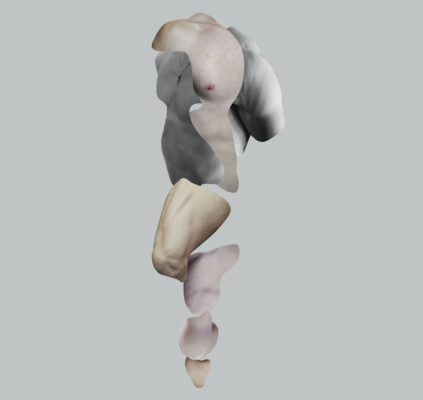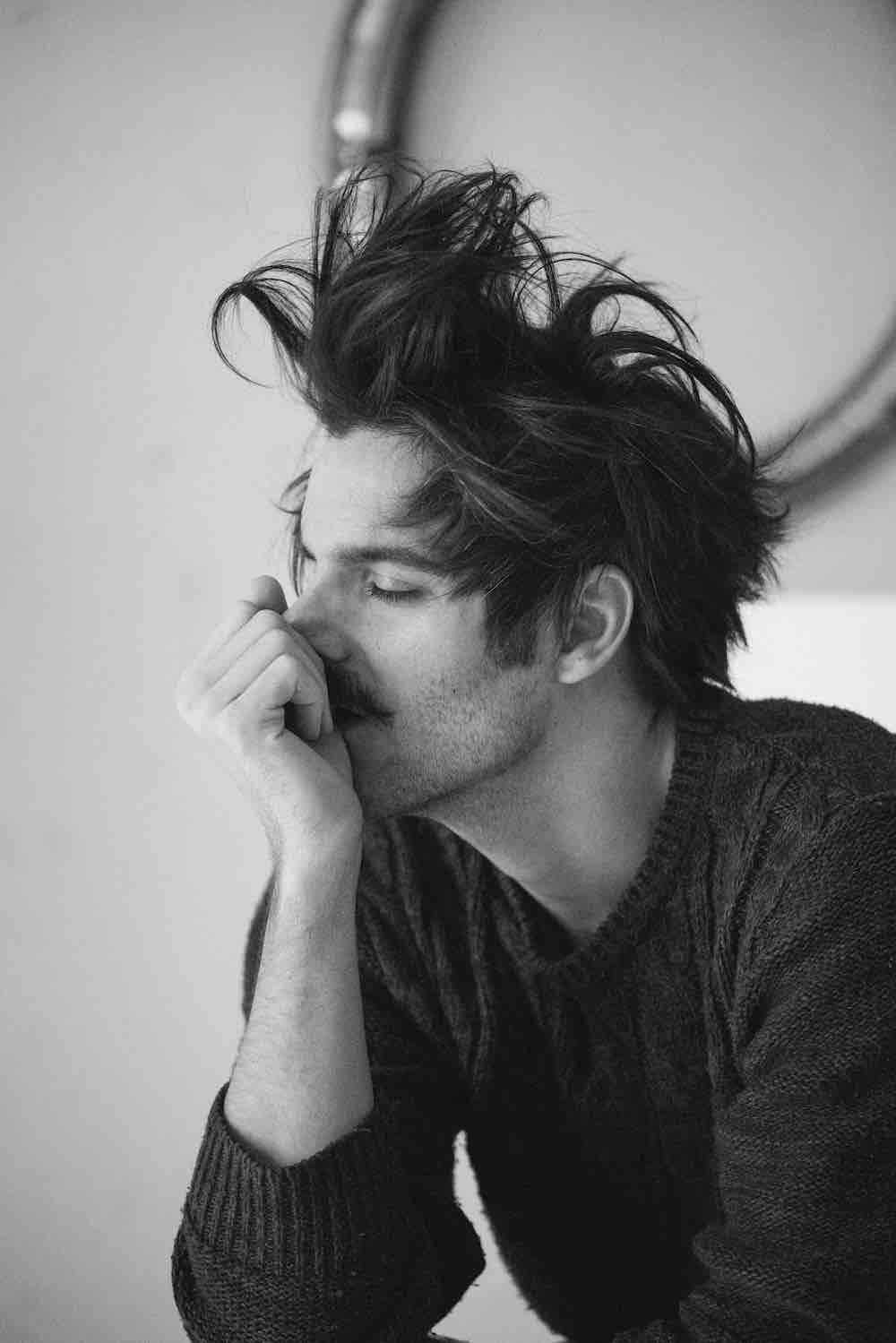Search
To search for an exact match, type the word or phrase you want in quotation marks.
A*DESK has been offering since 2002 contents about criticism and contemporary art. A*DESK has become consolidated thanks to all those who have believed in the project, all those who have followed us, debating, participating and collaborating. Many people have collaborated with A*DESK, and continue to do so. Their efforts, knowledge and belief in the project are what make it grow internationally. At A*DESK we have also generated work for over one hundred professionals in culture, from small collaborations with reviews and classes, to more prolonged and intense collaborations.
At A*DESK we believe in the need for free and universal access to culture and knowledge. We want to carry on being independent, remaining open to more ideas and opinions. If you believe in A*DESK, we need your backing to be able to continue. You can now participate in the project by supporting it. You can choose how much you want to contribute to the project.
You can decide how much you want to bring to the project.

Living in Cabo de Gata is teaching me the value of being literal. Here, the Cala de En Medio is literally between two coves, in Agua Amarga the water isn’t drinkable, and the Playazo, well, you can imagine. Infecting myself with its literalness helps me explain other things, as well. For example, when I am floating in the sea, I feel the pull of gravity less, and thus I understand that if I just let myself flow everything will seem less serious to me. Or, if I am inside a cave, I understand that, in moments of darkness, if I just let time pass I begin to see more clearly. So, to address the topic that Joaquín proposed of “working from the peripheries,” I am going to start, literally, from my own exodus from the city. Maybe this way it will be easier for me to explain other things, like why I started creating within a community.
CAPITAL PUNISHMENT
For eleven years, Madrid was very generous to me. It took me out of Malaga and offered me independence. I lived in three different houses that I enjoyed with four great couples and a handful of regular lovers. It brought me Pepe, my dog, from El Escorial. It introduced me to a heterogeneous cast of friends and supplied us with a cultural overdose of theaters, exhibitions and events in which people always asked other people what they do and checked out at what they were wearing and got drunk so they could fit in. It transformed my work from one discipline to another, helped it mature, gave it opportunities and visibility. My professional growth was so great that Madrid gave me a company with a personal assistant. The more I grew, the more things I had to pay to Madrid. Perhaps that’s why they call it capital. I spent many hours working in a beautiful studio overlooking the Royal Palace. I was thrilled with my role as an undisciplined artist, always waiting to finish a project so it could be published and I could start a new one. It seemed very much like the life I had always dreamt of, until one day I woke up and a ton of loneliness hit me. I just couldn’t bear the weight any longer. I gave away everything I had in the studio and, carrying just two t-shirts, my computer and Pepe in my arms, I hastily left the city.
I realized that my relationship with Madrid had become unbalanced. I had plenty of projects, deadlines and recognition, but I was longing for company, countryside and silence.
THE DISLOCATED
Pepito died recently. To say goodbye to him I gathered a lot of people together in El Limbo, which is what I call the house where I have lived in Cabo de Gata for the past four years. Limbo is the periphery where Catholicism temporarily houses those it does not know where to send.
We walked in silence to Pepe’s favorite cove, Cala Arena, literally full of sand. When we reached the cliff from which the cove can be seen, we started running like Pepe used to do until we ran all the way into the sea. Everyone who accompanied me that day had previously participated in one of the creation workshops that I teach, so they understood the rules of that somewhat ritualistic and everyday event.
BE SOMEONE ELSE
People of all kinds and from all over come to my workshops. There are no age limits or special requirements beyond being able to climb a mountain. For five days, people are both actors and audience in a performance that begins when they arrive and ends when they leave. No one is allowed to say what their profession is or what they do, nor what their past projects were or what their future ones will be. I ask them to present themself through things they have not chosen, as each one might interpret that. They usually talk about their family, their age, their body, their sex, their origins, their emotional stability, thus making clear that most of the things that make us who we are not of our own doing.
We experiment with different disciplines without needing previous experience in any of them. The actress doesn’t have to play an actress if she doesn’t want to, nor the photographer a photographer, nor the human resources person whatever it is that they do, and thus people forget a little about who they are supposed to be and allow themselves to be whatever they want.
Everyone has to wear a drab outfit without logos or images and they are not allowed to use make-up or wear accessories. We pay attention to the food we eat and everything that happens while we eat. We look into each other’s eyes for a long time and let the landscape respond to us with silence. We don’t applaud after performances, instead we focus on the process. No one has a cell phone. Would that alone be enough?
A CELLPHONE IN THE DESERT
It is true that for a transformation to occur, it helps to change appearance and location. If you keep looking at a screen, however, the most remote place can look a lot like a city.
Is offline the most radical periphery? I wonder if art, which always searches for extraordinary things, would be more interested in presence or in artificial intelligence. It’s not that I think one has to choose, but when exploring paths to the great beyond it makes sense to point out these two apparently opposite directions. I can recall how Mark Zuckerberg in his Metaverse presentation video appropriated the word presence, a term that must frighten his company. He spoke of the Metaverse as The Presence Platform and in just a few words stated that presence is already there, not here. And he was not wrong. If we meet someone on the street who no longer uses Instagram, even if they are standing in front of us, it’s quite likely that we will say to them: Where’ve you been? You disappeared.
And perhaps that person is actually trying to find a sense in life. Or several senses. Smell, taste, touch and even sight on the Internet is lost.
THE PERIPHERY, WHERE IS IT?
I think about my experiences in the capital and the different homes, couples and disciplines I’ve had, but also about the exhaustion from my production, the mistrust of recognition, the feeling of loneliness. I also think about the Metaverse and its promises of the great beyond, about the senses in Internet, about radical presence, and about my departure to Cabo de Gata in search of new ways of being and shared creation processes, about all those people running towards the sea and, once again, the literalness of life appears.
Perhaps the periphery is not a specific place. Perhaps that wavy figure is our body which we fill with experiences until we define an identity that from time to time must be emptied in order that we may be able to see and question our outlines before filling them in again.

Ernesto Artillo (Málaga 1987) is an undisciplinary artist who explores identity through different artistic genres. His essays on religion, the body, social networks or traditions are deployed in different media, making indefinition his most recognisable discipline.
She has collaborated with artists such as Niño de Elche, Rocío Molina, Javier Ballesteros, Julio Ruiz, Fergie, Luz Arcas, Manuel Liñán or Boye, among others; with companies such as Korsia, La extraña compañía and Mujer en Obras or institutions such as the Royal Theatre of Brussels, La Monnaie De Mun, Teatros del Canal and also CA2M, Museo Carmen Thyssen, CCC La térmica and CAC de Málaga.
Since 2015 he has been giving talks and workshops at universities, art schools and institutions. Lives and works in Cabo de Gata, Almeria.
Portrait by Paul Rodriguez.
"A desk is a dangerous place from which to watch the world" (John Le Carré)